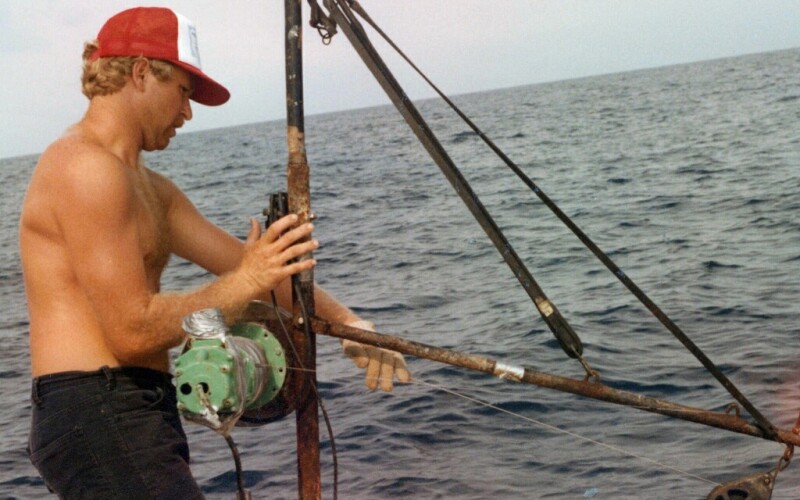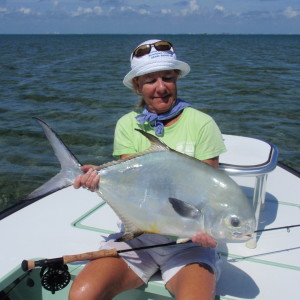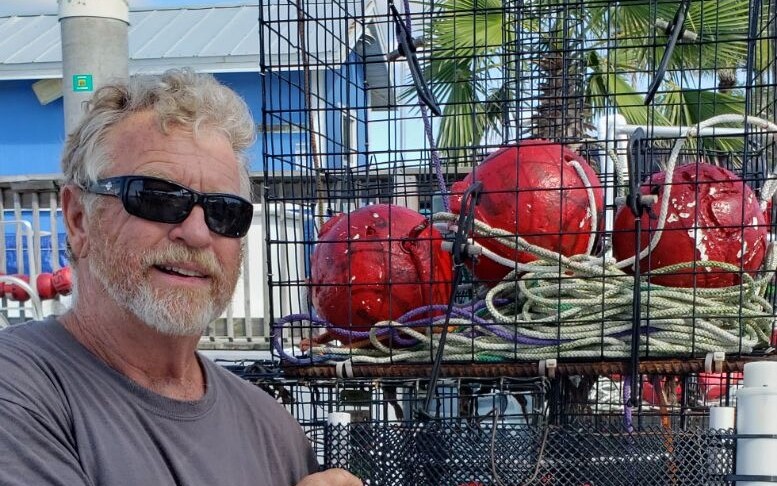Captain Jimmy Hull lives, eats and breathes fish — his words. In his 47 years as a commercial fisherman in Ormond Beach, Fla., he has been involved in just about every facet of the industry: harvesting fish and crabs; owning and operating wholesale and retail markets and a restaurant; advising federal and state fisheries managers on policies and regulations; and advocating on behalf of his peers.
At 68, this 2023 National Fisherman Highliner Award winner says there is nothing he would rather do in his life.
“I am pretty happy, pretty blessed to have everything work out for me,” Hull says. “I've been lucky to have the employees I've had and I'm lucky my father supported my decision to be a commercial fisherman. It's what I want to do.”

Hull's dad bought him his first john boat when he was in fourth grade, which he used to explore the waterways in and around northeast Florida's Ponce Inlet. He got his first job as a mate on a fishing boat at 15 and obtained his U.S. Coast Guard captain's license when he was 18.
He learned a lot working with professional charter boat and commercial captains and eventually bought his own fishing boat — a 42-footer — when he was 20. He fished up and down the southeast Atlantic coast in his twenties before marrying his wife Denise and deciding he needed to be home more.
Hull bought a small fish market in Ormond Beach that had been closed, learned the wholesale and retail business from top to bottom, and made the store successful. It grew from a store to a takeout kitchen and today Hull Seafood Market and Restaurant is an extremely popular retail shop and full-service restaurant with 125 employees and four commercial boats supplying product. Both the U.S. Senate and the Florida Governor's office have honored Hull's Seafood as an outstanding small business for creating jobs in the community.
Throughout his career, Hull has been deeply involved in trying to inform the science and management of South Atlantic fisheries. Recruited more than 15 years ago to join the Southeastern Fisheries Association by now-retired executive director Bob Jones, Hull has served as chairman and now is a board member of that influential, Tallahassee, Fla.-based trade organization.
Jones says Hull took the initiative to work closely with state fisheries scientists, escorting them on blue crab trapping trips so they could learn the ins and outs of that important Florida fishery.
“He provided them access to the resource anytime they wanted to go,” Jones said of his colleague. “It showed us that you could have the scientists and commercial fishermen working cooperatively. He is a consummate fisherman, and at the same time, a conservationist.”
He served ten years on the South Atlantic Fisheries Management Council's snapper/grouper advisory panel, chairing the panel for four years. He worked on NOAA Fisheries' bottlenose dolphin take reduction team and its Highly Migratory Species panel for the shark fishery.
He was a member of the South Atlantic Council's citizen science and stock assessment advisory committees. And he has lent his boat to scientists studying the use of ropeless fishing gear in the sea bass fishery to protect endangered North Atlantic right whales.
Hull says he and his commercial colleagues have succeeded in “moving the needle” on some issues, but “the science has been much tougher to influence. They don't have the data to inform the complex models they are using.”
Hull doesn't like the direction that fisheries management is heading. As an example, he cites red snapper, which has "taken over the bottom" in the South Atlantic, yet the commercial sector's allocation is shrinking.
Hull would like to rebuild the commercial shark fishery — especially for small coastal sharks such as blacktip and Atlantic sharpnose. He has popularized shark meat at his market and restaurant by taking extra care to tenderize it. But he said the fishery is not going to expand if fishermen can't sell the fins, which is illegal under U.S. law.
Hull is also very concerned about the loss of working waterfronts in Florida, which are being bought up in droves by eager developers and turned into recreational boat barns and condos. If the marina where he keeps his boats were sold, he said he doesn't know where he would relocate them.
And he says participation in the commercial fishery is waning: as veteran fishers age out, the next generation is not taking over their jobs.
“We continue to try to keep what we have and not lose anymore,” he said. “It's a fight to get commercial fishing represented on the councils.”
Hull is glad to see Laurilee Thompson serving her third year as a member of the South Atlantic council. The longtime commercial fisher, restaurant operator, and tourism leader from Titusville, Fla., has worked with Hull for years on industry issues.
Thompson calls Hull's Highliner Award a "well-deserved" honor.
“He's probably the best chair the snapper/grouper advisory panel ever had,” she said. “When I got on the council, he gave me the real rundown. I call him before every council meeting now to get his perspective on the amendments we're working on. He has probably the most successful seafood restaurant in his county. He sells local seafood, which is how it should be.”







